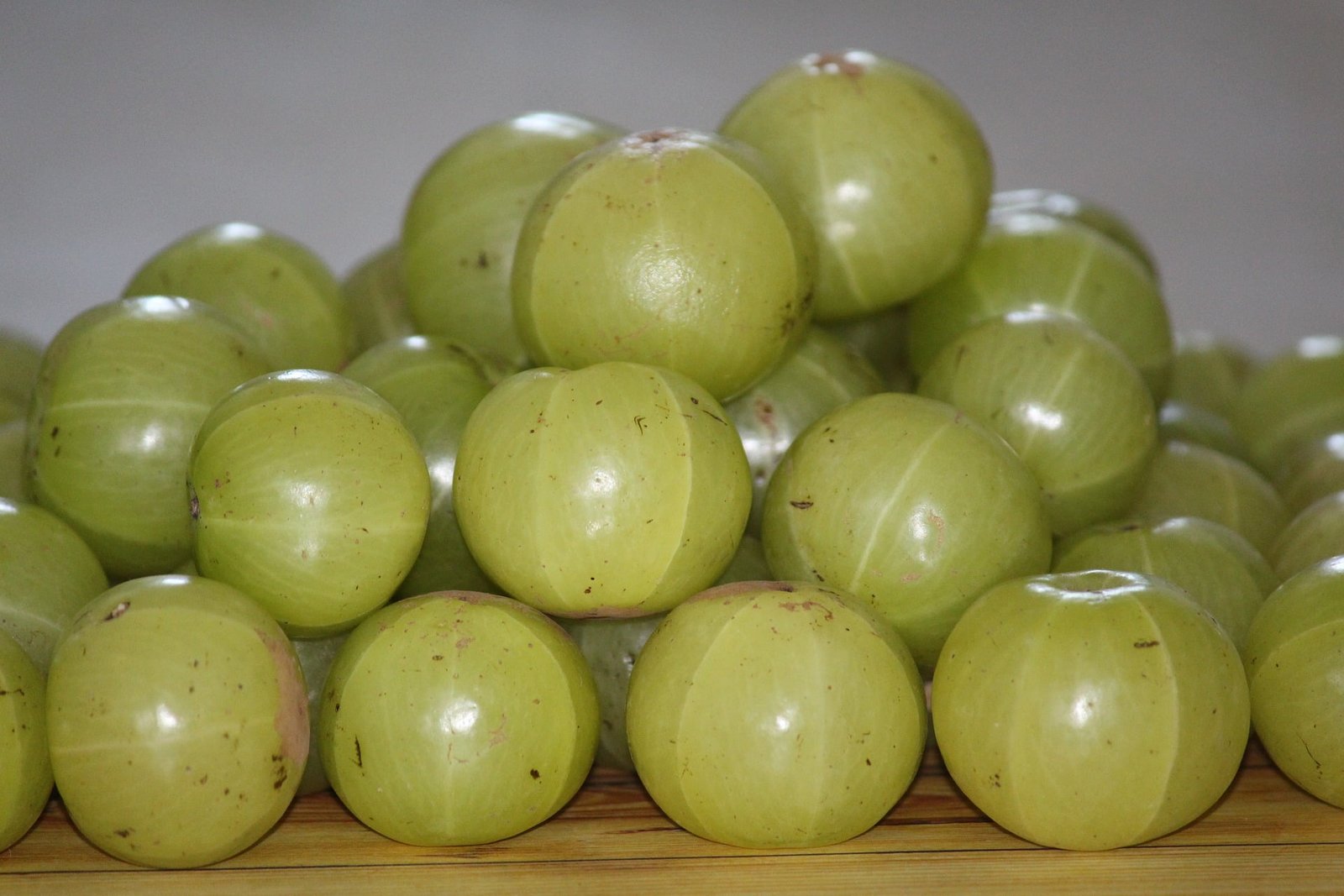
Amla - The Indian Gooseberry: A Superfruit with Surprising Benefits
Amla, also known as Indian gooseberry, is a vibrant green fruit native to India that has been revered for centuries for its medicinal properties. In recent years, amla has gained significant popularity in the US, with people recognizing its potential health benefits. This article delves into the fascinating world of amla, exploring its nutritional value, potential health advantages, and different ways to incorporate it into your diet.
Amla, scientifically named Emblica officinalis, is a small, round fruit with a tart, tangy flavor. It is a rich source of antioxidants, including vitamin C, which is known to bolster the immune system. Amla also contains other essential nutrients like iron, calcium, and fiber.

Nutritional Value of Amla or the India Gooseberry (% Per 100g)
Vitamin C 600mg/100g
Iron 1.2mb/100g
Phosphorous 0.02%
Calcium 0.05%
Protein 0.5%
Minerals 0.7%
Fibre 3.4%
Carbohydrate 14.1%
Moisture 81.2%

Benefits of Amla
Rich in Nutrients: Amla is packed with vitamins and minerals. It is particularly high in vitamin C, which is crucial for immune function, collagen production, and iron absorption. Additionally, amla contains antioxidants that help protect cells from damage.
Boosts Immunity: The high concentration of vitamin C in amla makes it a natural immune booster. Regular consumption of amla can help strengthen your body’s defenses against infections and diseases.
Promotes Hair Health: Amla is often used in traditional Indian hair care practices. It is believed to nourish the scalp, strengthen hair follicles, and prevent premature graying. Amla-based hair oils and shampoos are popular choices for those seeking healthy hair.
Aids Digestion: The fiber content in amla can help regulate digestion and prevent constipation. Amla is also believed to stimulate the production of digestive enzymes, promoting better absorption of nutrients.
May Help Manage Diabetes: Some studies suggest that amla may have beneficial effects on blood sugar levels. It contains compounds that can help improve insulin sensitivity, making it a potential aid for individuals with diabetes.
Supports Weight Loss: Amla’s fiber content can contribute to feelings of fullness and satiety, helping you manage your appetite and avoid overeating. Additionally, the antioxidants in amla may help boost metabolism.
Improves Skin Health: The antioxidant properties of amla can help protect the skin from damage caused by free radicals. Amla is often used in skincare products to promote a healthy and radiant complexion.

How to Consume Amla
Amla can be consumed in various ways:
Fresh: Amla can be eaten raw, although its tart flavor may not be to everyone’s liking.
Juice: Amla juice is a popular way to consume the fruit. It can be enjoyed on its own or mixed with other juices for a refreshing drink.
Pickle: Amla pickles are a traditional Indian condiment that adds a tangy flavor to meals.
Powder: Dried amla powder can be added to smoothies, yogurt, or other foods.
Supplements: Amla supplements are available in the form of capsules or tablets.
Conclusion
Amla, the Indian gooseberry, is a versatile fruit with a rich history and potential health benefits. By incorporating amla into your diet, you may experience improved immunity, digestion, and overall well-being.

Is amla safe for everyone?
While amla is generally safe for most people, it may interact with certain medications or cause side effects in some individuals. It’s advisable to consult with a healthcare professional before incorporating amla into your diet, especially if you have any underlying health conditions.
How often should I consume amla?
The recommended daily intake of amla can vary depending on individual needs and health goals. It’s generally safe to consume amla in moderation as part of a balanced diet.
Can amla help prevent cancer?
While research is ongoing, some studies suggest that the antioxidants in amla may have potential anticancer properties. However, more research is needed to confirm these claims.
Are there any side effects of consuming amla?
Excessive consumption of amla may lead to digestive issues, such as diarrhea or stomach upset. It’s important to consume amla in moderation.
Can amla be used for hair growth?
Amla is often used in traditional hair care practices to promote hair growth. While anecdotal evidence suggests its benefits, scientific research is limited.